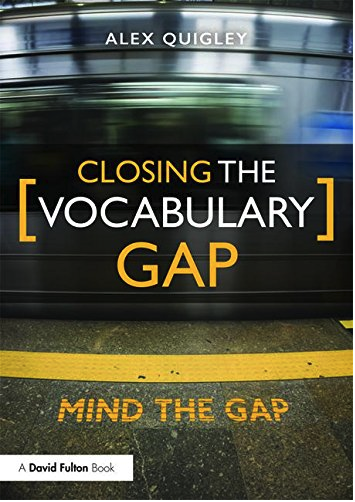“Stories are psychologically privileged in the human mind.” Daniel Willingham
The mind thinks and remembers in stories. It is part of the architecture of human memory and our human experience. Given it is so rooted in how we think, storytelling proves vital to learning and is useful in all sorts of ways in the classroom.
When it comes to teaching vocabulary, or simply teaching subject knowledge, etymology – the study of the origins of words and how they have changed over time – offers us a useful tool for memorable learning.
We use words daily, usually without a deep understanding of their origins and changes over time. And yet, when their meaning is unveiled to us, they can prove memorable, curious and downright intriguing.
Here are some of my favourite words and that what I think exhibit an engaging etymology:
- Anthology. I’ve used this word for countless years as an English teacher, but without any knowledge of the rather lovely etymology. ‘Anthos‘ comes from the Greek, meaning ‘flower’, with ‘logia’ meaning collection (from ‘legein’ – ‘gather’). So each time we see a bunch of poems or essays, we can beautify them a little by remembering that word ‘anthology’ emerges from a bunch of flowers.
- Nightmare. A ‘mare‘, from ‘mara’ in high German, described an evil spirit or goblin that rode on people’s chest whilst they slept, giving them nightmares. These gruesome fairy-tale-like origins capture something of visceral, physical experience of a nightmare.
- Clue. This word comes directly from Greek mythology and the tale of Theseus and the Minotaur. As the story goes, in the fabled labyrinth, Theseus used a ball of yarn to track his path. A ball of yarn was called a ‘clew’. Roll few many centuries and we have our modern day word: ‘clue’.
- Fascinate: This Latin word is truly bewitching in origin. From the Latin ‘fascinat’ – meaning ‘bewitched’, and the verb ‘fascinare’, from ‘fascinum’, meaning ‘spell, witchcraft’, or a phallus shaped amulet to ward off spells. There you go, fascinate is a truly bewitching word (just watch our for a dangerous phallus!)
- Mortgage. The etymology of this word is unerringly accurate and apt. Once more Latin in origin, from ‘mortuus‘ – meaning dead combined (familiar in words such as ‘mortality’) with ‘gage‘ – ‘pledge‘. The word then literally means “death pledge”! As I said, pretty apt.
- Corridor. A familiar word and path for teachers, it has rather ironic Latin origins. It comes the Latin ‘currere’, meaning ‘to run‘. Originally linked to fortifications, as a strip of land running along a ditch, it has more recently been stripped of its more specific origins. Next time we bewail running in the corridor, we can recall the ironic running roots of the word.
- Salary. This word for regular payment has some supposing roots linked to ‘salt’. You can see the resemblance in the ‘sal’ prefix, with ‘salary’ coming from the Latin, meaning a payment to soldiers – ‘salt money, or soldiers allowance to buy salt’. Salt was of course much prised in our ancient past and so its links to finance revealed just how essential it was.
- Malapropism. This word is used to describe mistaken word use for comic effect. It is actually an ‘eponym‘, which denotes a name or noun named after a person in history. In this case, it is a literary character Mrs Malaprop, from Sheridan’s eighteenth century play, ‘The Rivals‘. This narrowly beat out another literary eponym for the same meaning – a ‘Dogberryism‘ – named after the character, Dogberry, from Shakespeare’s ‘Much Ado About Nothing’.
- Hysteria. This word, used to describe a state of uncontrolled emotion, conveys some of the patriarchal roots of our English language. It has roots emerging from the Latin – ‘hystericus’ – meaning ‘womb’. And so, this particularly emotional madness is attributed to women and not men.
- Etymology. How could we explore word roots and etymology without tacking the etymology of… well ‘etymology’? From the Greek words ‘etymos’, meaning ‘true’, and ‘lógos’, denoting ‘word’ – it means then a ‘true word’.
And so, with a little digging, we can find the roots of words, illuminating some memorable truths about their history and meaning.
Though many of these words offer us simply the pleasure of a great story, etymology and word roots can be harnessed as an effective teaching strategy. I have written a chapter on this, with an array of strategies, in my new book, ‘Closing the Vocabulary Gap‘. It is available on Amazon HERE and at Routledge HERE.







Comments